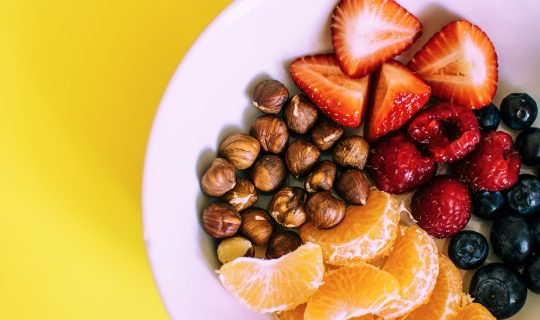Ozempic, Wegovy and other GLP-1 agonists — often referred to as weight loss jabs — have become almost impossible to ignore. They’re widely promoted for appetite control, weight loss and improved blood sugar regulation, and for many busy women they seem like a welcome shortcut when trying to lose some extra weight (not discussing here…
Is Chocolate Good or Bad for You?
by Lucia Stansbie
Easter is here, and so chocolate is everywhere! There is plenty of information in media saying chocolate is good for you and that it can be considered a superfood; this information can be in conflict with what you have always thought about (chocolate is highly calorific, too much can give you spots, is a “junk” food,…).
What is the truth?
The truth is there are different kinds of chocolate…70% dark chocolate is very different from a mars bar in terms of nutritional properties!
Talking about chocolate bars, the darker the chocolate, the higher the cocoa powder content. All chocolate bars contain cocoa butter and sugar, with milk chocolate also containing milk and white chocolate containing only milk, cocoa butter and sugar. Cocoa butter is rich in saturated fats, 60% of the total fat content, which should be consumed in moderation to preserve cardiovascular health. Most nutrients associated with health benefits are found in cacao powder and nibs.
Cacao itself is one of the richest sources of anti-inflammatory antioxidants (catechins, epicatechins, procyanidins) and cocoa powder and nibs can have multiple benefits for the cardiovascular system, including lowering cholesterol levels, improving nitric oxide production and so supporting blood flow, and can also increase good mood supporting serotonin production. It is important to note that among all phytochemical in cacao, there is also caffeine. 100g of 80% dark chocolate has 80mg of caffeine, the same as an espresso, so it is not advisable as a bedtime treat if you are a light sleeper or are sensitive to caffeine.
So cacao powder and nibs are superfoods, right?
They could be, but it is important to note that cacao beans are fermented and then roasted to make them palatable as otherwise they will be too bitter and contain too many tannins, and this process can degrade up to 60% of their antioxidant content. Raw cacao/chocolate usually retains more antioxidants as it is roasted at lower temperatures, but still some will be lost during this process.
Chocolate snack bars can be delicious, but it is essential to look at their ingredient list. Added caramel, dry fruit and biscuits can increase the total amount of sugar as well as containing glucose syrup and corn syrup, which should be consumed in moderation for their association with obesity and diabetes. It is also essential to check for palm oil which is a source of saturated fats. Chocolate snack bars, even some “healthy” ones, can be very processed foods empty of all original nutrients and antioxidants of cocoa, making them a food high in sugar and fats with little nourishment.
What is the final verdict?
Raw dark chocolate, cacao powder and nibs can be a good source of antioxidants, so there is no reason to eliminate them from your diet if you like the taste. If choosing chocolate instead of cocoa powder, it is better to opt for raw chocolate with a high percentage of cocoa powder (70% and above) to maximise antioxidant intake. I would not recommend it as a daily treat as it still contains saturated fats and added sugar; I also believe it is crucial to vary between different foods, not just fixate on one (a good alternative if fancying something sweet is a chia seed pudding or some nut butter on oat cakes). Also, the quantity of chocolate you have in one sitting has an impact, as it is still a high-calorific food; a couple of squares of dark chocolate won’t have a massive impact if trying to manage weight, but half of the bar or a small bar daily will.
I would try to avoid having regularly milky-chocolate bars or more elaborate kinds of chocolate – at the end of the day, those are very processed foods which retain almost any nutritional value. They can have a place as an occasional treat to enjoy during the festive season, when socialising or just for the sake of it, with the awareness that they taste delicious but is a food completely empty of any nourishment.
On a final note, when choosing your chocolate, sustainability and fair trade should be considered. Cacao is considered one of the environmentally friendly products, ranking just below red meat for the extensive impact cultivation has on the planet (and on the population of nations where cacao is grown).



